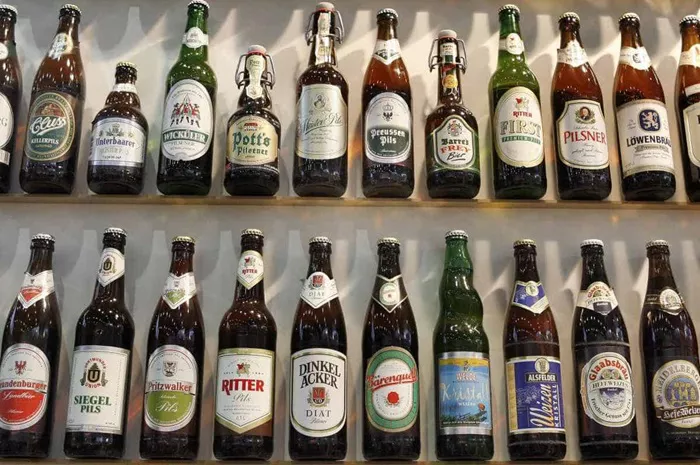Ahead of and beyond International Women’s Day on March 8, Barcelona Wine Week (BWW) showcased the exceptional work of female winemakers in a special tasting and panel discussion titled Vinos de Autora. The event highlighted wines produced under the technical direction of women, demonstrating their talent and expertise without focusing on gender but rather emphasizing their work, knowledge, and experience.
A Platform for Talent Beyond Gender
Moderated by renowned Catalan sommelier and journalist Meritxell Falgueras, who is also the fifth-generation leader at Celler de Gelida, the panel featured a distinguished lineup of winemakers. These included Laura Tragant (head winemaker at Codorníu, Sant Sadurní d’Anoia), Martina Prieto Pariente (winemaker at Bodegas Prieto Pariente, Rueda), Amor López (founder and winemaker at Bodega Erupción, Lanzarote), Mireia Pujol-Busquets (winemaker at Alta Alella, Alella), Mayte Calvo de la Banda (technical director at Bodegas Bilbaínas, Rioja), Anne Cannan (winemaker at Clos Figueras, Priorat), María Barbadillo (winemaker at Bodegas Barbadillo, Jerez), and Clara Verheij (founder and winemaker at Bodegas Bentomiz, Málaga). The panelists are all members of Mujeres del Vino, a collective championing the visibility of women across the wine industry, from vineyard to table.
The session not only celebrated the technical expertise of these women but also acknowledged the entrepreneurial spirit and resilience required to succeed in a traditionally male-dominated industry. Many of the winemakers have successfully navigated complex professional landscapes, building their careers while sometimes forging new paths within established family legacies.
Diversity and Resilience in Spanish Wine
One key theme that emerged during the discussion was the correlation between inclusivity—across gender, background, nationality, and philosophy—and the vibrant evolution of Spanish wine over the past 30 years. The panelists suggested that a more inclusive and diverse approach to winemaking had contributed to the enhancement of wine quality and creativity in Spain. The broader vocabulary of wine styles and techniques was seen as a key factor in attracting a wider consumer base.
The panel’s diversity also highlighted the dynamic nature of the Spanish wine scene, which blends the stability of long-established family businesses (like Barbadillo and Prieto Pariente) with innovative projects that have transformed their respective Denominations of Origin (DOs) such as Alta Alella and Erupción. Additionally, ventures led by passionate foreigners like Anne Cannan at Clos Figueras and Clara Verheij at Bentomiz brought fresh perspectives and unique approaches to Spanish winemaking.
Challenges in the Industry: Climate Change and Sustainability
While the panel celebrated the successes of female winemakers, it also addressed broader issues facing the Spanish and global wine industries. Key topics included the economic and political challenges, the impact of climate change, and the importance of social sustainability—issues that are intricately connected to greater inclusivity in the workforce.
The wines showcased during the session offered a natural springboard for discussions. Barbadillo’s ÁS de Mirabrás Sumatorio highlighted the importance of reinventing traditional wine styles while maintaining a sense of personal and generational identity. Wines like Erupción’s Milagro de Magmasia and José Pariente’s Finca Las Comas emphasized the need to preserve ancient soils and old vines, a key concern given Spain’s vast stock of ancient vineyards. The resilience of old vines, particularly in the face of climate change, proved crucial in maintaining high-quality fruit despite difficult growing conditions.
Sustainability and Future Directions
The conversation further explored sustainability, with a focus on the preservation of genetic diversity in vineyards. Old vines, while costly to maintain, provide a unique advantage by being more resilient to the challenges posed by climate change, offering a pathway to sustainable viticulture while also producing some of Spain’s best wines.
Tasting wines such as Clos Figueras’ Font de la Figuera and Bodegas Bilbaína’s Viña Zaco reignited debates about the evolving classification systems of Spanish wine DOs, particularly in regions like Rioja, Bierzo, and Priorat, where terroir has become a more prominent factor in defining wine quality.
Codorníu’s sparkling Ars Colecta Tros Nous bridged the conversation between white and red wines, sparking a discussion about meeting consumer expectations while maintaining quality and integrity in winemaking. Tragant emphasized the need for winemakers to be confident in the value and pricing of Spanish wines, which are deeply rooted in the country’s diverse terroirs and viticultural heritage.
A Story of Perseverance and Vision
In her segment, Clara Verheij shared her journey from the Netherlands to Málaga, where she revived a centuries-old winemaking tradition at Bodegas Bentomiz. Her perseverance was a testament to the transformative power of vision and commitment in the face of challenges.
The panel, by intertwining technical knowledge with personal narratives, offered an engaging and relatable session for attendees. The winemakers’ stories and experiences not only made the wines more approachable but also framed the broader issues in a way that was easy to understand and connect with.
Conclusion: A Tribute to Creativity and Resilience
Ultimately, the Vinos de Autora session at BWW was a celebration of creativity, resilience, and the continued evolution of Spanish wine. By showcasing wines that reflect a diverse range of regions and styles, the event underscored the importance of giving voice to underrepresented areas in the wine world. It also served as a reminder that progress should not be taken for granted, especially in the face of global challenges.
You Might Be Interested In:


